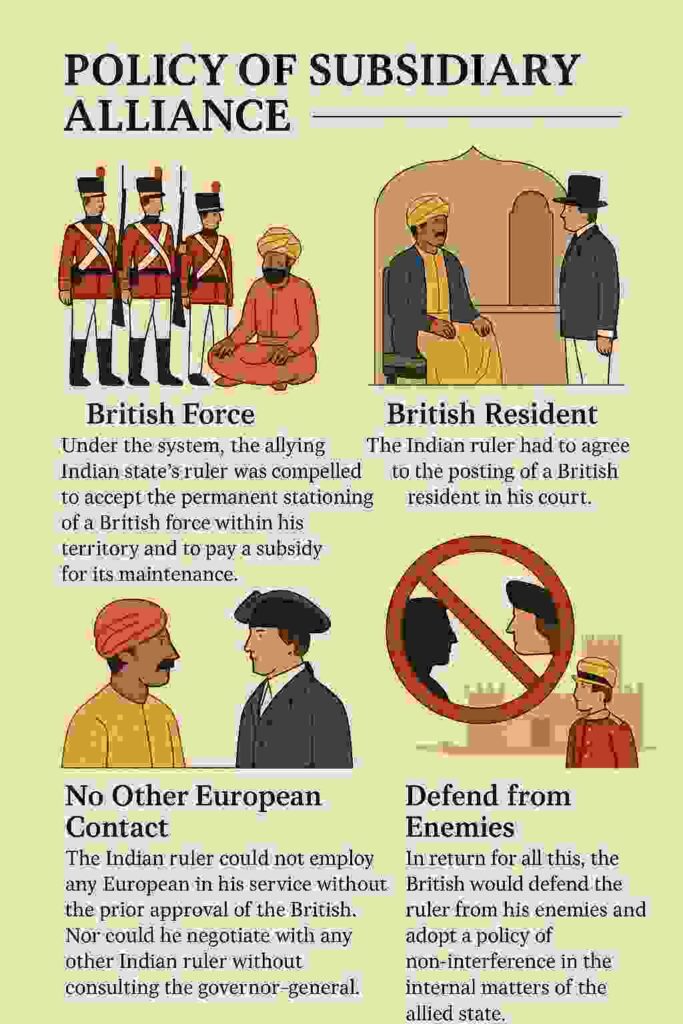Answer:
Approach to the answer:
The question discusses how the British employed the strategy of interfering in the conflict or battle of Indian rulers. The strategy is traced back to French Governor Dupleix in the second half of the sentence.
- Here, we must first describe Dupleix’s intervention strategies. After that, we must describe how the British learned the concept and provide examples of its application.
- The first time Dupleix was employed as an intervening strategy in India can be used to introduce the answer. We might alternatively begin by providing the background of the inquiry, such as why the French and British employed the approach or what their goal was.
For Example: The British arrived in India with the goal of commerce, but the Carnatic and Bengali wars (Plassey and Buxar) provided them a tactical edge that allowed them to conquer the country. The strategy of becoming involved in the Indian ruler’s conflict was one of such tactical advantages.
Body: Since the question requires us to provide clarification, we must support the statement with facts and instances. Therefore, Dupleix’s plans and tactics will be covered in the first part, while the British adopted the same methods to strengthen their position in India in the second half.
Subsidiary Alliance Policy
- The arrangement required the monarch of the allying Indian state to consent to the permanent stationing of a British force on his soil and to provide funding for its upkeep.
- The appointment of a British resident to the Indian ruler’s court required his consent.
- Without the British government’s previous consent, the Indian monarch was not permitted to hire any Europeans. He also had to inform the governor-general before engaging in negotiations with any other Indian monarch.

Conclusion: We can either summarize the points made in the body part or discuss the long-term effects of British strategies in India, such as the 1857 uprising.
Practice Question:
Question: How did the British manipulate internal rivalries of Indian states to establish their dominance? Substantiate your answer with reference to the Carnatic and Bengal wars. (Answer in 250 words)
Mains PYQs
Question: Analyze the significance of the Carnatic Wars in shaping colonial control over India.
MCQs
Question: With reference to Marcus Dupleix, consider the following statements:
- He was the first European to interfere in the internal political affairs of Indian rulers.
- He supported Chanda Sahib in the Carnatic region and Muzaffar Jang in Hyderabad.
- He strictly avoided deploying French troops in Indian territories under any Indian ruler.
Which of the statements given above is/are correct?
- a) 1 and 2 only
- b) 2 and 3 only
- c) 1 and 3 only
- d) 1, 2 and 3
Answer: a) 1 and 2 only
UPSC General Studies Paper Preparation
| Topic | |
| UPSC Syllabus | GS Genius-50 Program |
| Public administration crash course | UPSC GS Mains 2025 Study Material |
| About the Author: Nitin Kumar Singh |



